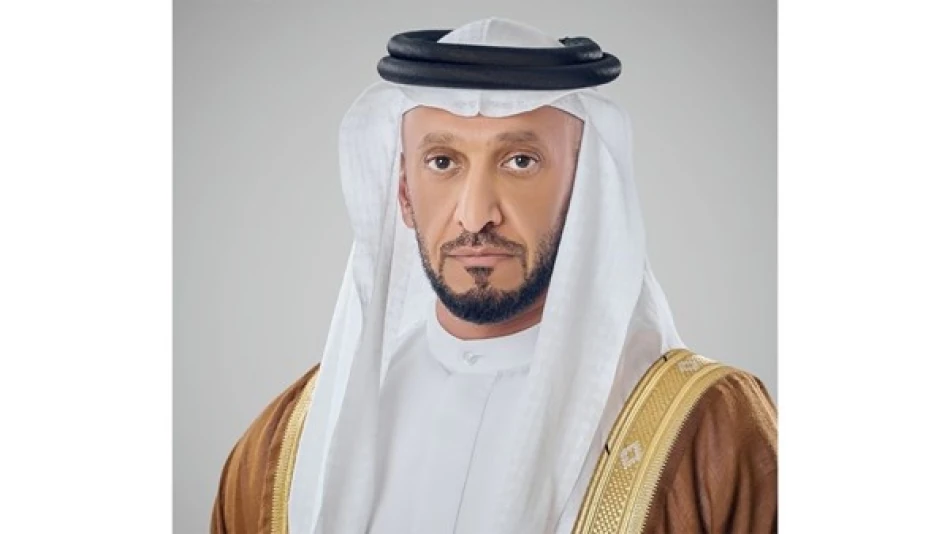
Al Hamed Holds Bilateral Talks in Osaka to Prepare for 'Bridge' Media and Academic Summit
UAE Positions Itself as Global Media Hub with Strategic Japan Partnership Ahead of Bridge Summit
The UAE is accelerating its transformation into a global media and intellectual dialogue center, with senior officials conducting high-level meetings in Japan to forge strategic partnerships ahead of December's Bridge Summit in Abu Dhabi. The initiative signals the Emirates' broader ambition to compete with established media hubs like Singapore and Hong Kong while leveraging its geographic position between East and West.
Strategic Outreach to Japanese Media Giants
Abdullah bin Mohammed bin Butti Al Hamed, Chairman of the UAE Media Council and head of the National Media Office, met with key Japanese media and academic leaders in Osaka as part of his Asian tour to prepare for the upcoming summit. The meetings included executives from Japan's public broadcasting corporation NHK, Tokyo International University, and leading media platforms.
The discussions centered on integrating traditional and digital media roles, with particular emphasis on how universities and cultural institutions can develop next-generation thought leaders and media professionals. This approach reflects a growing recognition that media influence increasingly depends on cross-platform strategies and educational partnerships.
Key Japanese Partners
The UAE delegation engaged with several influential figures, including Takeshi Shibasaki, head of global content development at Japan's public broadcasting corporation, Sugiura Mika, editor-in-chief of Japan Forward newspaper, and Wada Masashi, professor emeritus at Tokyo International University. These partnerships represent access to Japan's sophisticated media landscape and its unique position in Asian markets.
Bridge Summit: Competing with Global Media Centers
The December Bridge Summit represents the UAE's latest effort to establish Abu Dhabi as a premier destination for international media and cultural dialogue. This positioning directly challenges other regional hubs that have traditionally dominated cross-cultural media exchanges.
Al Hamed emphasized that the summit offers a "strategic opportunity to unify international media and cultural efforts amid global changes," suggesting the UAE sees current geopolitical shifts as an opening to expand its soft power influence. The timing coincides with increased Middle Eastern investment in media and entertainment sectors, following Saudi Arabia's massive entertainment initiatives and Qatar's World Cup media success.
Market Implications for Regional Media Landscape
For media investors and industry observers, the UAE's systematic approach to building international partnerships signals serious long-term commitment to the sector. The focus on Japanese partnerships is particularly strategic, given Japan's advanced digital media technologies and its role as a gateway to broader Asian markets.
The emphasis on "creative platforms" for enhancing cross-cultural understanding also suggests opportunities in the growing creator economy and digital content sectors. As traditional media boundaries blur, the UAE appears to be positioning itself at the intersection of government-backed initiatives and private sector innovation.
Broader Regional Competition
This initiative reflects intensifying competition among Gulf states to become regional media and cultural centers. While Dubai has established itself in entertainment and events, Abu Dhabi's focus on intellectual dialogue and media partnerships represents a complementary but distinct strategy.
The systematic approach to building partnerships with established institutions like NHK and Tokyo International University demonstrates a mature understanding that media influence requires both infrastructure and credibility. Unlike some regional competitors that rely primarily on financial investment, the UAE appears to be building institutional relationships that could provide sustainable competitive advantages.
Most Viewed News

 Layla Al Mansoori
Layla Al Mansoori






